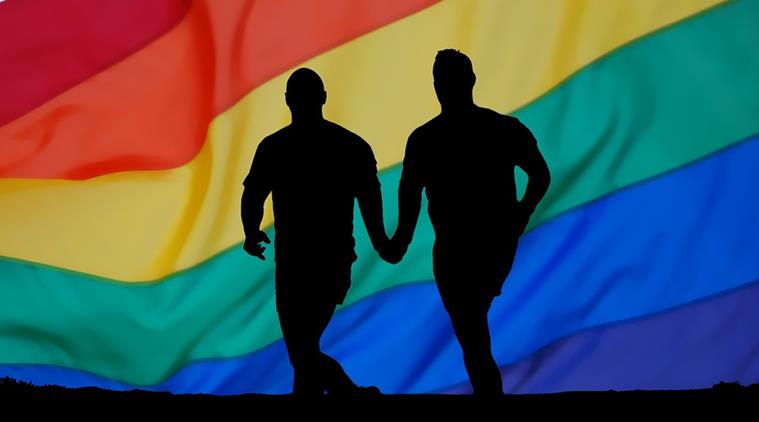The
government also said that the marriage in India is not just a matter
between two individuals but “a solemn institution” between "a biological
man and a biological woman”.
By Sofi Ahsan
 The
Centre told the Delhi High Court that living together as partners and
having sexual relationship by same sex individuals is not comparable
with the “Indian family unit concept”. (Representational image/File)
The
Centre told the Delhi High Court that living together as partners and
having sexual relationship by same sex individuals is not comparable
with the “Indian family unit concept”. (Representational image/File)
SEEKING DISMISSAL of petitions praying for recognition of same-sex marriages under existing laws, the Centre Thursday told the Delhi High Court that a marriage in India necessarily depends upon “age-old customs, rituals, practices, cultural ethos and societal values”, and that in reading down the provision of Section 377 of the IPC covering homosexuality, the Supreme Court had only decriminalised “a particular human behaviour” but “neither intended to, nor did in fact, legitimise the human conduct in question”.
In response to three petitions seeking legalisation of same-sex marriages, the government said there exists a “legitimate State interest” in limiting the recognition of marriage to persons of opposite sex. The considerations of “societal morality” are relevant in considering the validity of a law and it is for the Legislature to enforce such societal morality and public acceptance based upon Indian ethos, a reply by the Ministry of Law and Justice says.
“The fundamental right under Article 21 is subject to the procedure established by law and the same cannot be expanded to… include the fundamental right for same sex marriage to be recognised under the laws… which in fact mandate the contrary,” the Centre’s reply says.
Living together as partners or in a relationship with a same-sex individual is “not comparable” with the “Indian family unit concept” of a husband, wife and children, the government said, arguing that the institution of marriage has a “sanctity”. “In our country, despite statutory recognition of the relationship of marriage between a biological man and a biological woman, marriage necessarily depends upon age-old customs… societal values.”
The government also argued that while marriage happens between two private individuals, it “cannot be relegated” to merely a concept within the domain of privacy of an individual. On the other hand, the Centre told the Delhi High Court, marriage is recognised as public recognition of a relationship, with which several statutory rights and obligations are attached. It also said that the Supreme Court judgment in the Navtej Singh Johar case “does not extend the right to privacy to include a fundamental right in the nature of a right to marry by two individuals of same gender”.
The government also said that while the court can analyse existing rights for this, it cannot create a new right. It is not “permissible” for the court to override the legislative intent with regard to limiting the legal recognition of marriage to heterosexual couples, the Centre said. Marriage between two individuals of the same gender is “neither recognised nor accepted in any uncodified personal law or any codified statutory law”, the Centre said.
“Any interference with the existing marriage laws would cause complete havoc with the delicate balance of personal laws in the country,” the government concluded, adding that it may lead to further anomalies with laws governing marriages of persons belonging to the Christian or Muslim faith.
The reply was in response to three petitions filed last year. In one of the petitions, Dr Kavita Arora, a psychiatrist, and Ankita Khanna, a therapist, sought enforcement of fundamental right to choice of partner, after their application for solemnisation of marriage under the Special Marriage Act was rejected by a Marriage Officer in Delhi on the ground that they are a same-sex couple.
The second petition was filed by Parag Vijay Mehta, an Overseas Citizen of India card holder, and Vaibhav Jain, an Indian citizen, who got married in Washington DC in 2017 and whose application for registration of marriage under the Foreign Marriage Act was rejected by the Consulate General of India at New York.
The third PIL, for recognition of same-sex marriages under the Hindu Marriage Act, was filed by defence analyst Abhijit Iyer Mitra and three others.
On Thursday, a lawyer working with a leading international law firm in the US, an artificial intelligence scientist in California, an economics consultant and a business development manager also approached the High Court seeking “non-discriminatory access” to the Special Marriage Act for LGBTQ+ individuals.
The Division Bench of Justices Rajiv Sahai Endlaw and Amit Bansal has listed the cases for next hearing on April 20.







0 comments:
Post a Comment